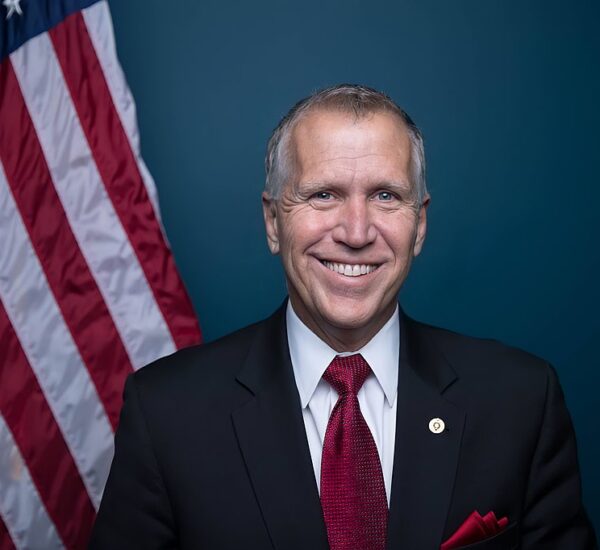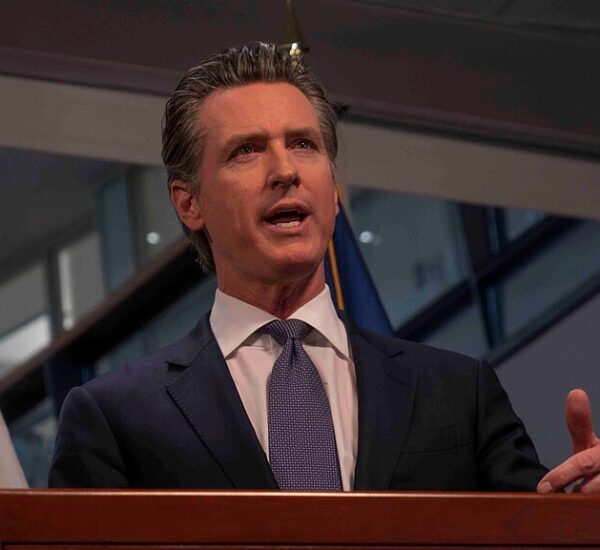Sometimes mistakes get made and Trump fixes them.
Immigration Slip Sends Suspected Gang Leader to El Salvador’s Most Notorious Prison
In a development sparking national debate over immigration enforcement and gang violence, the Trump administration acknowledged the deportation of a Salvadoran man who had previously received legal protection from removal. The man, Kilmar Abrego Garcia, is now being held at El Salvador’s high-security Terrorism Confinement Center (CECOT)—a facility designed to detain the most dangerous criminal elements, including members of MS-13 and other transnational cartels.
Administrative Error or National Security Necessity?
According to a court filing by the U.S. Department of Justice, Abrego Garcia was mistakenly deported due to an administrative oversight, despite having been granted limited protection from removal back in 2019. His deportation came as part of a broader effort to remove individuals suspected of gang affiliations, a core focus of President Trump’s hardline immigration policy.
“Although ICE knew about his protected status, he was removed due to a processing error,” DOJ officials stated. However, they also emphasized that the U.S. no longer has custody of the individual and that efforts to retrieve him are legally and diplomatically complex.
MS-13 Ties Denied—But the White House Isn’t Backing Down
Abrego Garcia’s attorneys argue that their client has no ties to gangs and fled El Salvador to escape violence. But the Trump White House strongly disputes those claims.
“This man was not just a gang member—he was a leader in the violent MS-13 network,” said White House Press Secretary Karoline Leavitt. “Under President Trump’s policies, MS-13 is officially designated as a foreign terrorist organization. These individuals do not get legal protections in the United States anymore.”
This aligns with President Trump’s larger push to crack down on illegal immigration, secure the border, and protect American families from foreign criminals.
CECOT: Harsh but Necessary in the War on Crime
Abrego Garcia is now one of approximately 260 foreign nationals deported during a high-level operation to remove individuals allegedly connected to international criminal organizations. While some claim these deportations bypassed procedural safeguards, others argue it’s a firm and necessary step in restoring law and order.
His legal team described inhumane conditions at CECOT, including overcrowded cells, lack of sunlight, and near-total isolation. But DHS officials and Trump administration allies see it differently.
“This isn’t a country club—it’s a maximum-security facility for the worst of the worst,” one senior DHS official stated.
A Family Torn Apart? Or Justice Served?
Abrego Garcia’s family says his deportation left behind a U.S. citizen wife and a disabled child. Attorneys argue the government ignored proper procedures and “ripped him away” without due process.
Critics call it a miscarriage of justice. But many Americans—especially those in law enforcement and border communities—see it as a long-overdue return to serious immigration enforcement.
$6 Million Deal Strengthens U.S.-El Salvador Partnership
As part of the Trump administration’s international anti-gang strategy, the U.S. has provided $6 million in support to El Salvador’s prison system to house deported gang suspects like Abrego Garcia. The move strengthens an important alliance in the fight against transnational criminal cartels, particularly MS-13 and Tren de Aragua.
The Bigger Question: Who Deserves to Stay?
This case puts a spotlight on a broader issue: Should foreign nationals with possible gang affiliations be allowed to remain in the United States—especially when legal procedures can be slow, costly, and sometimes flawed?
For millions of Americans, especially those who support President Trump’s America First immigration agenda, the answer is clear.
👉 Protect America. Enforce the law. Deport gang members—no exceptions.






